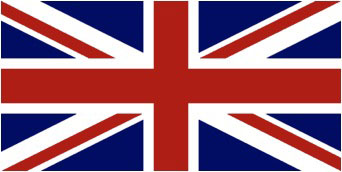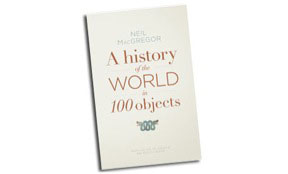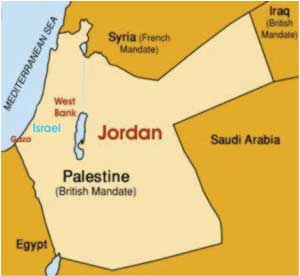
If I had to select the most prominent takeaway from both working and going to grad school in Britain, it would have to be the impression that many English men and women consider the modern world very much their own. That the luxuries and conveniences of the present are a testament to their civilization, that America is a kind of brash upstart exaggerating British concepts, and that things before and outside of a British world are looked upon with a haughty fascination. However, as I now live and work back in the United States, I cannot help but acknowledge that most of the international struggles we face today have roots back to a period when Britain was either the world’s superpower, or slightly falling into decline. As such, Britain may very well be justified in its views of the modern world being very much a British product.
 Shortly before I left London to return to Boston, I had one last academic jaunt. My contract as a researcher for a British documentary on Medieval Europe had just ended, and the producer of the project invited me to attend a lecture at the Southbank Centre. I enthusiastically agreed, as this was a lecture by Neil MacGregor, Director of the British Museum, discussing the ideas in his new book, A History of the World in 100 Objects.
Shortly before I left London to return to Boston, I had one last academic jaunt. My contract as a researcher for a British documentary on Medieval Europe had just ended, and the producer of the project invited me to attend a lecture at the Southbank Centre. I enthusiastically agreed, as this was a lecture by Neil MacGregor, Director of the British Museum, discussing the ideas in his new book, A History of the World in 100 Objects.
Besides obtaining an autographed copy of the book, the lecture was particularly rewarding in that it gave me a new perspective to compose my closing thoughts about the UK and its role in the world. The theme of the lecture was one of culture and learning, but the tone implied that Britain essentially created our modern, interconnected world. MacGregor emphasized that it was the British Museum, founded in 1753, which revolutionized museum curation by displaying objects not from a national standpoint, but a global one. It was difficult to ignore the irony of a nation proclaiming its disdain for self-serving nationalism while giving itself a robust pat on the back. Then again, this contradictory attitude may very well underscore the majority of British history and its people: a politeness in power, an indirect manner of demand, and a reserved self esteem. These traits all make for a charming peculiarity that has come to define the essence of being British.
More to the point, the criticisms that America faces in its international policy—justified or not—often lead the casual follower to assume that the origins of these problems lie solely with the US. Although America’s methods of dealing with international issues may be questionable, it was often Britain that created these issues in the first place. For instance, one of the most troubling issues of the modern world is the debate surrounding Israel and Palestine. Should Palestine be allowed its own sovereign nation given the actions of Hamas? Does Israel enforce inhumane conditions on the people of the Gaza? Should Israel exist as a state ruled by one religion? Can’t the two just get along? These questions extend to, and affect the safety of, nations around the world: from America and the West to Iran and the Middle East.
A crucial point often ignored, is that it was Britain in 1948 whose hasty withdrawal from the area led to Palestinian Jews establishing the state of Israel without regard for a previously planned, neighboring Arab state. Prior to that, Britain ruled the area known as the Mandate for Palestine, which it held since the conclusion of WWI and the collapse of the Ottoman Empire. In 1947, plans were being drafted for Britain to cede control of the area and to help create a coexisting, two-state region: one Arab and one Jewish. The UN and US had vigorously supported these plans, however, due to increasing unrest from Jews and Arabs, Britain decided to abandon the area prematurely, before the dual-state solution could be implemented, and that’s when the problems of Israeli borders and Palestinian statehood began.
 The lasting effects of British international policy do not end at the Holy Land. Another critical issue today is rooted in Anglo-Saxon foreign policy. Threatening to bring the world into total war, Iran’s persistence to acquire nuclear capabilities—either for peaceful purposes or not—places global stability at an extraordinary risk. Its extremist, theocratic government is often directly at odds with the US government: an uncomfortable coexistence that has existed since Iranian students stormed the United States’ embassy in Tehran and held American diplomats hostage for over a year.
The lasting effects of British international policy do not end at the Holy Land. Another critical issue today is rooted in Anglo-Saxon foreign policy. Threatening to bring the world into total war, Iran’s persistence to acquire nuclear capabilities—either for peaceful purposes or not—places global stability at an extraordinary risk. Its extremist, theocratic government is often directly at odds with the US government: an uncomfortable coexistence that has existed since Iranian students stormed the United States’ embassy in Tehran and held American diplomats hostage for over a year.
However, the root of the tensions between the US and Iran essentially lies with Britain. In the beginning of the 20th century, Britain had discovered oil in Iran and, through negotiation with its rulers, acquired a private contract to extract the oil. The Anglo-Persian Oil Company, a government-controlled organization that later became British Petrolum (BP), was thereby in charge of all oil extraction in Iranian territory. However, as time progressed and the value of oil increased, the Iranian people became dissatisfied with the idea of a foreign company having a monopoly on their nation’s resources. The Iranian Government appealed to Britain to renegotiate the contract, hoping to come to a deal on the profits, but Britain remained steadfast to the original agreement.
In 1950, the Iranian Government learned that America was equally splitting its oil sales profits with the Saudi Arabian Government. Upon learning this information and developing an emboldened sense of betrayal, Iranian Prime Minister, Mohammed Mossadegh, moved to completely nationalize the Iranian oil fields. Losing Iranian oil profits was detrimental to Britain’s modernizing economy, and so the British Crown appealed to the CIA for assistance in staging a coup against the democratically elected Mossadegh. Despite a lack of interest at Britain’s initial request, America, eventually needing Britain’s military assistance to contain Communism in Korea, acquiesced. Mossadegh was removed and replaced with the Shah: a British-American puppet leader who brutally repressed dissent among the Iranian public.
Britain’s historic role in shaping the modern world, along with its problems and benefits, requires no stretch of the imagination; even Britain’s Conservative Prime Minister, David Cameron, recently apologized for “causing many of the world’s problems”. It should come as no surprise that an empire exercising a power that extends far beyond its own borders could affect the course of history. Other past empires are just as guilty as Britain, if not more: France under Napoleon can be credited with sewing the seeds of the nationalism that led to the creation of Germany and Italy, and inevitably, World War I and II. Spain is unquestionable responsible for the decimation of Middle and South America: areas that have since lagged behind the European-North America world. The Holy Roman Empire can be held responsible for the rise of secularism, Protestantism, and the resultant inter-Christian violence, and so on.
In fact, when comparing and contrasting the Empires of the past, Britain, despite its unparalleled geographical dominion, is arguably one of the most moderate. There was never a British Emperor rattling the sabres of war for glory based on territorial gain and conquest: Britain’s reach was largely motivated by economic opportunity. Though the British Empire did evidence its fair share of racism, violence against colonial populations, and inflexibility, the British Empire was, for the most part, the first empire more concerned with markets than war. Perhaps Neil MacGregor was correct in that Britain was and is a leader in reshaping the world and how we think: a civilized, internationally-focused nation that, despite its occasional missteps, respects and appreciates the cultures of those it comes in contact with. Whether one views our contemporary world as good or bad, interconnected or problematic, it is hard to deny that we are very much still living in Britain’s World.


